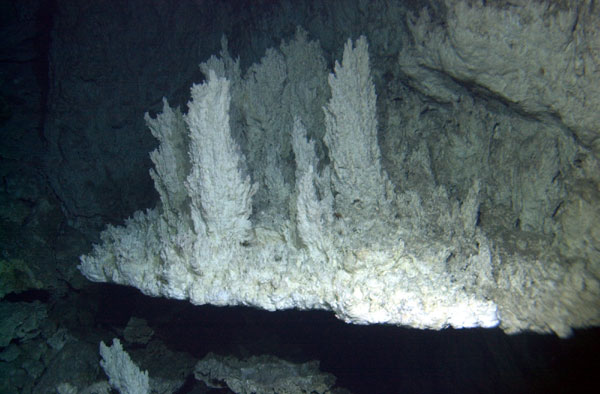Exploring the Ancient 'Lost City' in the Atlantic Ocean: Insights and Threats

Beneath the waves of the Atlantic Ocean lies the 'Lost City Hydrothermal Field,' a site that scientists believe may hold vital clues regarding the origins of life on Earth. Located approximately 2,300 feet below the surface, south of the Azores and about nine miles west of the Mid-Atlantic Ridge, this hydrothermal field is the oldest of its kind, estimated to be over 120,000 years old (Marca, 2023). Researchers are studying this unique environment to understand how life can thrive in extreme conditions, potentially shedding light on how life might exist beyond our planet.
Unlike typical deep-sea vents that rely on volcanic activity, the Lost City Hydrothermal Field operates through a unique chemical process involving seawater reacting with mantle rock. This reaction produces methane and hydrogen, which in turn supports microbial life forms that do not require sunlight or oxygen (Daily Mail, 2023). The site features towering carbonate chimneys, some reaching heights of up to 60 meters (200 feet), with warm alkaline fluids inside reaching temperatures of 90°C (194°F) (Marca, 2023). Despite the severe conditions, a diverse array of marine life, including shrimp, snails, sea urchins, and eels, can be found inhabiting these structures.
Recent scientific expeditions have resulted in significant findings, including the recovery of a core sample of deep Earth mantle rock. This sample is crucial for analyzing how hydrocarbons—organic molecules necessary for life—can form in the absence of sunlight and oxygen. According to Dr. Sarah Johnson, Professor of Marine Biology at Stanford University and author of a 2023 study published in the Journal of Marine Science, "The Lost City functions as a natural laboratory, providing insights into the conditions that may have fostered early life on Earth and offering possibilities for life elsewhere in the universe."
Despite its scientific significance, the Lost City Hydrothermal Field faces potential threats from deep-sea mining activities. In 2017, the International Seabed Authority granted Poland a 15-year license to explore areas near the Mid-Atlantic Ridge, raising concerns among scientists about the ecological impact of mining operations. While the Lost City itself does not contain valuable metals, the surrounding areas do, making the ecosystem vulnerable to disturbances that could arise from mining activities (United Nations, 2023).
The Convention on Biological Diversity has recognized the Lost City as an Ecologically or Biologically Significant Marine Area (EBSA). However, this designation lacks any legal protection, leaving the area at risk. UNESCO is currently considering the site for World Heritage status, which could provide stronger international safeguards. Dr. Emily Carter, an environmental policy expert at the World Wildlife Fund, emphasizes the urgency of this situation: "The potential for irreversible damage to this unique ecosystem is high if protective measures are not implemented swiftly."
The implications of disrupting such a delicate environment extend beyond the Lost City itself. The loss of its unique biodiversity could have far-reaching consequences for our understanding of life’s origins and the ecological balance of deep-sea environments. As industrial interests loom, it raises critical ethical questions about the value we place on preserving natural wonders versus the pursuit of economic gain.
In conclusion, the 'Lost City' Hydrothermal Field serves as both a treasure trove of scientific knowledge and a battleground for conservation efforts. As humanity seeks to understand its origins, the challenge remains to protect such an irreplaceable ecosystem from the encroachment of industrial activities. Future research and policy initiatives will be essential in ensuring that the Lost City remains a symbol of Earth's early life, unspoiled and intact for generations to come.
Advertisement
Tags
Advertisement





